
Worried about your air conditioner? You’re not alone. Air conditioning issues can rear their head in a wide variety of ways, and it’s very important that you take action as soon as these signs first arise.
When well-functioning, an air conditioner offers excellent climate control and comfort. However, like all devices and equipment, they still need regular upkeep to perform at their best. This is why we’ve compiled a quick list of the top 5 signs your air conditioner needs immediate repair.
Keep reading to find out what these signs are and how to get professional help!
We rely on air conditioning systems almost every day. From relaxing at home to commuting to work, visiting the movies or enjoying a meal at a local restaurant, these systems allow us to stay comfortable in a variety of different weather conditions.
On average, most existing air conditioners have a shelf-life of between 15-20 years. Unfortunately, much like the cars we drive, these units are still vulnerable to technical, electrical, and functional faults. So, whether you own split systems, evaporative coolers or ducted reverse cycle, every owner should always be proactive and stay on top of air conditioning issues.
For starters, this approach can save you a significant amount of money, be it in the form of lower power bills or the often hefty costs associated with getting an air con system replaced. Faulty heating and cooling systems may also cause damage to your property. We will cover this further in our section on leaks and puddles.
First things first, if your air conditioner doesn’t turn at all, contact a local heating and cooling specialist as soon as possible. However, there are many other key signs that your air conditioner needs immediate repairs or, at the least, needs to be checked by a licensed and qualified HVAC technician.
While the following signs aren’t the only indications of a faulty AC system, they are certainly worthy of your attention!
Our top five signs are:
Noticed any of these issues? Give us a call and we’ll turn up with a solution in a swish. Our licensed technicians can perform a thorough air conditioning service for an affordable price. Reach out to us now to arrange an inspection!
Foul or strange odours are never pleasant, but in this case, they can also be a serious cause for concern. This is even more relevant for newer split systems and ducted systems that come with excellent air purification technology. Therefore, if you own a new system and strange smells start to waft through your property, reach out to a professional straight away.
Here are some of the smells/odours that you may come across:
Much like strange odours, the audible signs are also a common indicator that something has gone awry. These sounds may appear as soon as you turn the air conditioner on, or when the system is struggling to perform at certain modes and temperature settings. If these sounds are persistent, there’s no better time than now to contact a local heating and cooling team.
Let’s give some practical examples of the sounds you might hear for each type of air conditioning system:
If you’re looking for reliable split system air conditioner service Maroondah Services offers expert care to keep your unit running smoothly and prevent costly issues.
For expert ducted air conditioning services trust Maroondah Air Services to keep your system efficient and your home comfortable year-round.
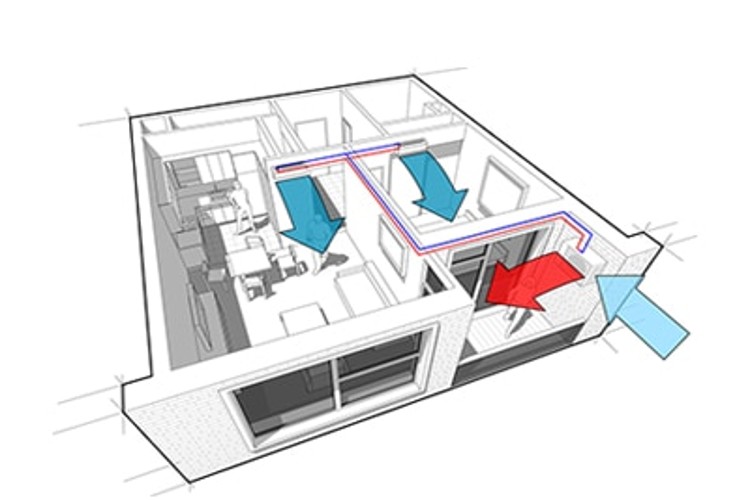
Although power bills are on the rise in Melbourne, a major spike in your monthly or quality figure could indicate that something is seriously wrong. Unless someone at the property has been using the AC unit to an excessive degree, this is another common sign that it requires immediate repairs or maintenance.
A sudden spike in your utility bills is alarming but will be temporary if you contact the professionals and get a licensed technician to carry out an inspection. Of course, we’re mostly referring to periods that fall outside the regular peak times of usage (such as the height of summer).
So, what may be the cause of these higher power bills? Let’s explore a few common examples:
Noticed leaks, puddles, or a build-up of liquid near any of your air conditioners components? While a little condensation is normal and generally nothing to worry about, anything more significant can because for concern.
Whether these leaks and puddles appear inside the property or near the outdoor condenser units, we recommend that you get your system checked as soon as possible. One of key reasons for this is that leaks may becaused by blockages in pipes or ductwork, which can then lead to more significant damage.
Here is what each issue may mean for you:
Found worrying refrigerant leaks or puddles at your home? We are the leading experts for air con repairs in Melbourne’s East. Whether you need assistance for gas heater replacement in Bayswater or Box Hill air conditioning, our team is always ready to lend a helping hand!
Ideally, your air conditioner (whether wall mounted, portable or ducted), will be able to seamlessly shift between different temperature settings and provide optimal comfort. When they struggle to do so, or are simply blowing out hot air instead of cool, chances are your system needs to be repaired.
Some older air conditioners, for example, struggle to operate when the outside temperature is too high. Generally, this is a sign of problems with the condenser unit of the air compressor. It may also mean that there isn’t a sufficient amount of refrigerant liquid in the system.
Here are practical examples of these issues:
Air conditioning systems are not only complex but also positioned in hard-to-reach areas. This ultimately makes DIY repairs very difficult. In addition, there are serious safety risks that come with attempting to fix these problems yourself. Put simply, you should leave it to the professionals.
Only heating and cooling specialists have the required training, licences, knowledge, skill set, and equipment to carry out a thorough inspection of your air conditioning system. After this, they’ll provide an accurate assessment of the situation at hand and then provide a quote on the costs needed for repairs.
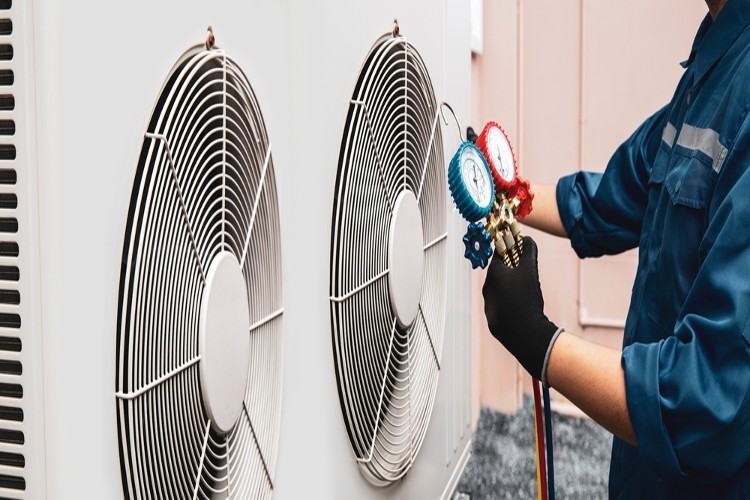
When it comes to your air conditioner, it’s always better to be safe than sorry. Whether you’ve noticed strange noises and odours, or refrigerant leaks and inconsistent cooling, our experts can carry out a detailed air conditioning service and determine the best course of action.
Welcome to Maroondah Air Services, where our award-winning team offers high-quality air conditioning service, repairs, and maintenance in Melbourne. You can contact us today to speak to an expert on the right air conditioners for your home, save money on your energy bills and keep your family comfortable, no matter the weather!

Melbourne winters are long, and so many of us rely on heaters to stay warm and cosy throughout the cooler months. Much like cars and other appliances, your heating system needs a little TLC to perform at its best. This is why regular maintenance is so important. As much as regular maintenance and repairs are … Continue reading A Beginner’s Guide to Choosing a Reliable Heating Service
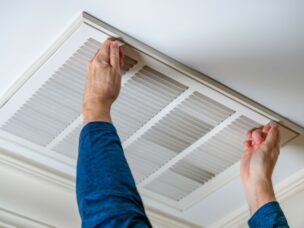
If well maintained, ducted air conditioning can provide excellent indoor climate control and keep you comfortable all year long. However, it’s important to remember that these systems work hard, especially if you have a large home, business or warehouse. Unlike portable air containers, you can’t simply take them down to your local repairer. From the … Continue reading 5 Signs You Need Ducted Air Conditioning Maintenance
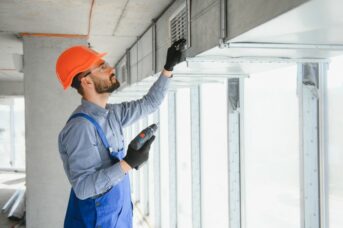
As winters become cooler and cooler, we’re all depending on our heaters more than ever. This is why it’s even more inconvenient and frustrating when something goes wrong. If you own a gas-based heater, we’re here to provide a simple guide to choosing the right repair team. Whether you own ducted gas, a gas log … Continue reading Choosing the Right Professional for Your Gas Heater Repair: Practical Tips
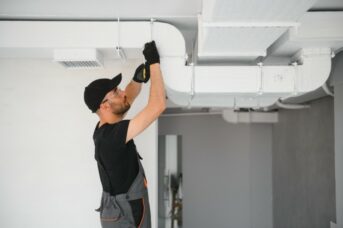
Wondering if it’s time to get your ducted heating serviced? Whether it’s gas or electric, regular maintenance is important for every heating and cooling system. From optimal performance to energy efficiency and safety, a little upkeep can keep it in great working order. As one of Melbourne’s leading HVAC teams, we’re here to help you … Continue reading Signs You Need to Service Your Ducted Heating System
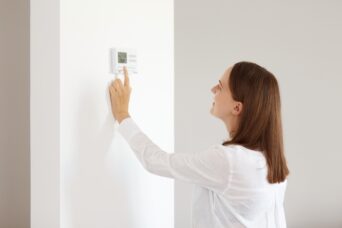
As Australia’s weather becomes more and more unpredictable, a reliable heating and cooling system is more important than ever. Of the numerous options available, ducted gas heating continues to be a popular choice for Melbourne homes and businesses. However, like any system, it needs regular attention to perform at its best. Whether you’re dealing with … Continue reading Booking a Ducted Gas Heating Repair Service: What You Need to Know

Whether you use gas or electricity, getting that quarterly bill can be a shock! Thankfully, the Australian Government has put together a solution for struggling with daily living costs. If you want to take advantage of the Victorian Energy Rebate, this article is your ultimate guide to receiving helpful program benefits for your household or … Continue reading How to Get the $300 Victorian Energy Bill Rebate and VEU Program Benefits
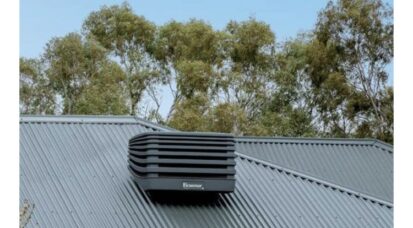
While split system air conditioners tend to get the most attention, evaporative cooling continues to be one of the best options on the market. However, much like any air conditioner, a regular tune-up will help them to keep you cool all summer long.So, how can you choose the right evaporative cooling service provider? We’ve compiled … Continue reading Practical Tips for Choosing the Right Evaporative Cooling Service Provider
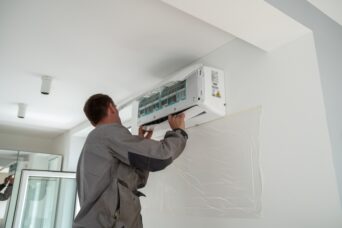
Whether your unit is relatively new or a number of years old, there are many benefits that come with regular split system maintenance. On a basic level, it’s all about keeping your system humming and free from major functional issues. However, this is only a snapshot of the bigger picture. Throughout this article, we’re going … Continue reading The Benefits of Regular Split System Maintenance
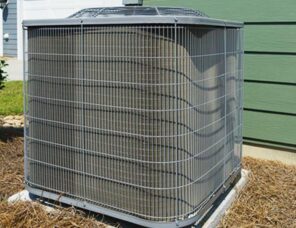
Planning to use your evaporation cooling this summer? Noticed an issue with the way it’s operating? Whatever the circumstances, it’s important to get it checked out and serviced by an expert. Knowing that maintenance is needed is one thing, but finding the right service provider is another. Luckily, we’re here to break down everything you … Continue reading Why Regular Servicing is Essential for Your Evaporative Air Conditioner